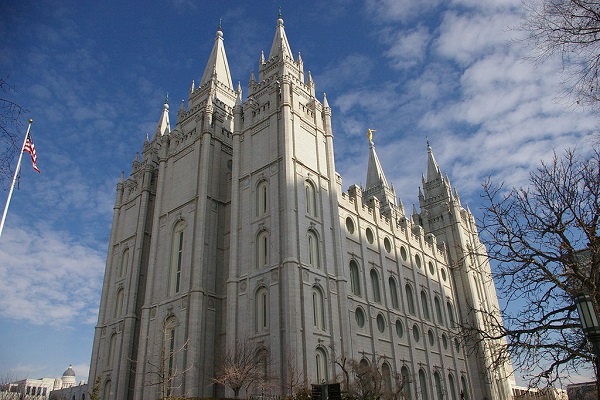
What does the LDS Church think about Marijuana in Utah?
- By Nathan Glover --
- 18 Feb 2016 --
![By Scott Catron from Sandy, Utah, USA (Salt Lake LDS Temple) [CC BY-SA 2.0], via Wikimedia Commons](http://www.worldreligionnews.com/wp-content/uploads/2016/02/1024px-Salt_Lake_LDS_Temple.jpg)
LDS stresses state should balance between the medical needs and responsible control.
Two bills have been presented to the Utah State Legislature on the proposed use of medical marijuana. However, this has received mixed reactions from different stakeholders each expressing different views concerning the bills. The Church of Jesus Christ of the Latter-day Saints has issued a statement regarding this matter. On Friday, February 12, 2016, the Church gave its statement rejecting the proposal of Senate Bill 73.
What does the LDS Church think about Marijuana in Utah?[/tweetthis]
However, the Church has not opposed the proposal on S.B. 89 although it does not have the capacity for evaluating medical claims. The bone of contention has arisen because the two bills have contentious issues regarding the access, control, distribution and the potential harm that can be caused by the hallucinogenic compound THC.
Other disagreements have been attributed to the fact that the federal law does not allow the use of medical marijuana. The Church also cited a complimenting American Medical Association policy report:
(1) Our AMA calls for further adequate and well-controlled studies of marijuana and related cannabinoids in patients who have serious conditions for which preclinical, anecdotal, or controlled evidence suggests possible efficacy and the application of such results to the understanding and treatment of disease. (2) Our AMA urges that marijuana’s status as a federal schedule I controlled substance be reviewed with the goal of facilitating the conduct of clinical research and development of cannabinoid-based medicines, and alternate delivery methods. This should not be viewed as an endorsement of state-based medical cannabis programs, the legalization of marijuana, or that scientific evidence on the therapeutic use of cannabis meets the current standards for a prescription drug product. (3) Our AMA urges the National Institutes of Health (NIH), the Drug Enforcement Administration (DEA), and the Food and Drug Administration (FDA) to develop a special schedule and implement administrative procedures to facilitate grant applications and the conduct of well-designed clinical research involving cannabis and its potential medical utility. This effort should include: a) disseminating specific information for researchers on the development of safeguards for cannabis clinical research protocols and the development of a model informed consent form for institutional review board evaluation; b) sufficient funding to support such clinical research and access for qualified investigators to adequate supplies of cannabis for clinical research purposes; c) confirming that cannabis of various and consistent strengths and/or placebo will be supplied by the National Institute on Drug Abuse to investigators registered with the DEA who are conducting bona fide clinical research studies that receive FDA approval, regardless of whether or not the NIH is the primary source of grant support. (4) Our AMA believes that effective patient care requires the free and unfettered exchange of information on treatment alternatives and that discussion of these alternatives between physicians and patients should not subject either party to criminal sanctions.(CSA Rep. 10, I-97; Modified: CSA Rep. 6, A-01; Modified: CSAPH Rep. 3, I-09; Modified in lieu of Res. 902, I-10; Reaffirmed in lieu of Res. 523, A-11; Reaffirmed in lieu of Res. 202, I-12; Reaffirmed: CSAPH Rep. 2, I-13)
The Church calls for a “cautious approach” urging the state to consider the possible effects that can be created by this move. The Church maintained its previous position on stressing that the state should balance between the medical needs and the need for responsible control measures.
Medical marijuana on the ballot might make red state #Utah a little purple: https://t.co/lfM2yLJb9M #utpol pic.twitter.com/b8OOcTXm4r
— Ben Winslow (@BenWinslow) February 18, 2016
Therefore, the Church statement has strongly opposed legalization of medical marijuana according to S.B. 73. The bill which was brought to the floor of the House by Sen. Mark Madsen would allow Utah people with poor health conditions to get a prescription from a doctor and consume edible marijuana-based products. The Church has supported S.B. 89 which provides a platform for addressing this matter.


















